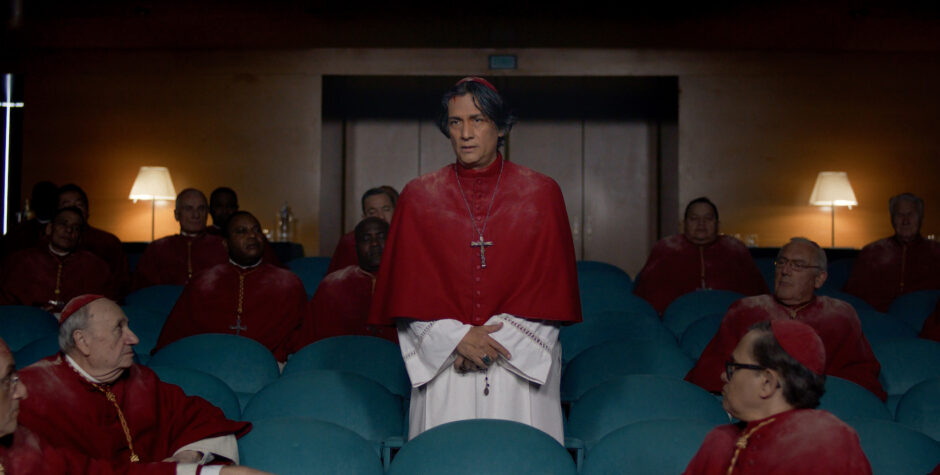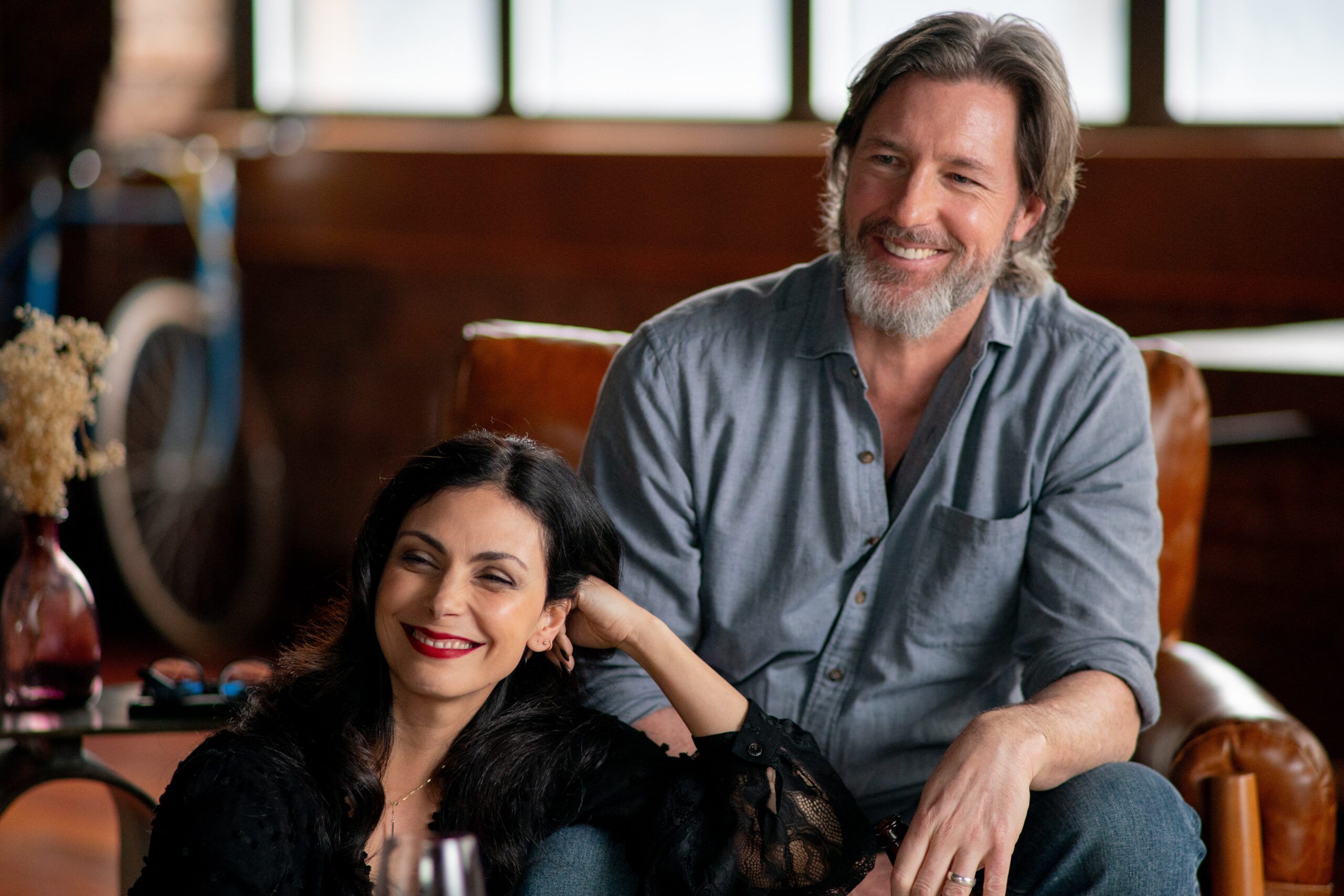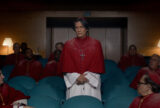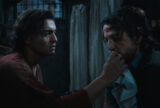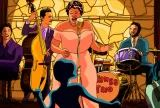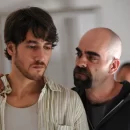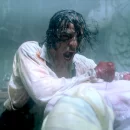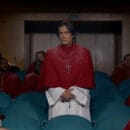12.19.2024 | By Jack Rico |
Recently, my wife and I watched two films that center on religion: Conclave and Heretic. We watched them about a week apart, and they inspired some deep conversations about the decline of morality and the role of churches in our country. I say this because, frankly, religion is a topic most people want to avoid. So when two critically acclaimed films about religion arrive at the same moment, igniting awards chatter and cultural debates, it raises a compelling question: Is religion making a comeback, or is it transforming into something new?
A Quick Look at the Films
For those who haven’t seen either film:
Conclave, starring Ralph Fiennes, unfolds like a political thriller. It takes us behind the scenes of a papal election, exposing the inner workings of one of the world’s most secretive processes. It’s a deliciously devious, high-stakes drama about ambition, corruption, and moral compromises. It’s so good that it’s worthy of a second watch.
Heretic, starring Hugh Grant, draws us into the world of two young Mormon missionaries whose faith is pushed to the breaking point when they encounter Mr. Reed (Grant), a charismatic heretic who lures them into a dangerous psychological game of cat and mouse. This bold, tense, and thought-provoking film explores how faith can be twisted and stripped of its innocence, featuring a hauntingly layered and memorably chilling performance by Grant.
How Conclave and Heretic Explore Religion and Faith
What struck me most is how both films, whether intentionally or not, challenge the idea that religion is divinely ordained. Conclave peels back the curtain behind the supposedly divine process of selecting a pope, demystifying the whole sacredness of the papacy. Heretic, on the other hand, establishes that religion can be weaponized as a tool for control and manipulation rather than a source of spiritual connection. You could argue that both sets of filmmakers, Edward Berger (Conclave) and Scott Beck and Bryan Woods (Heretic), presented religion as both divisive and deeply human, as a social construct that can be used for good or evil.
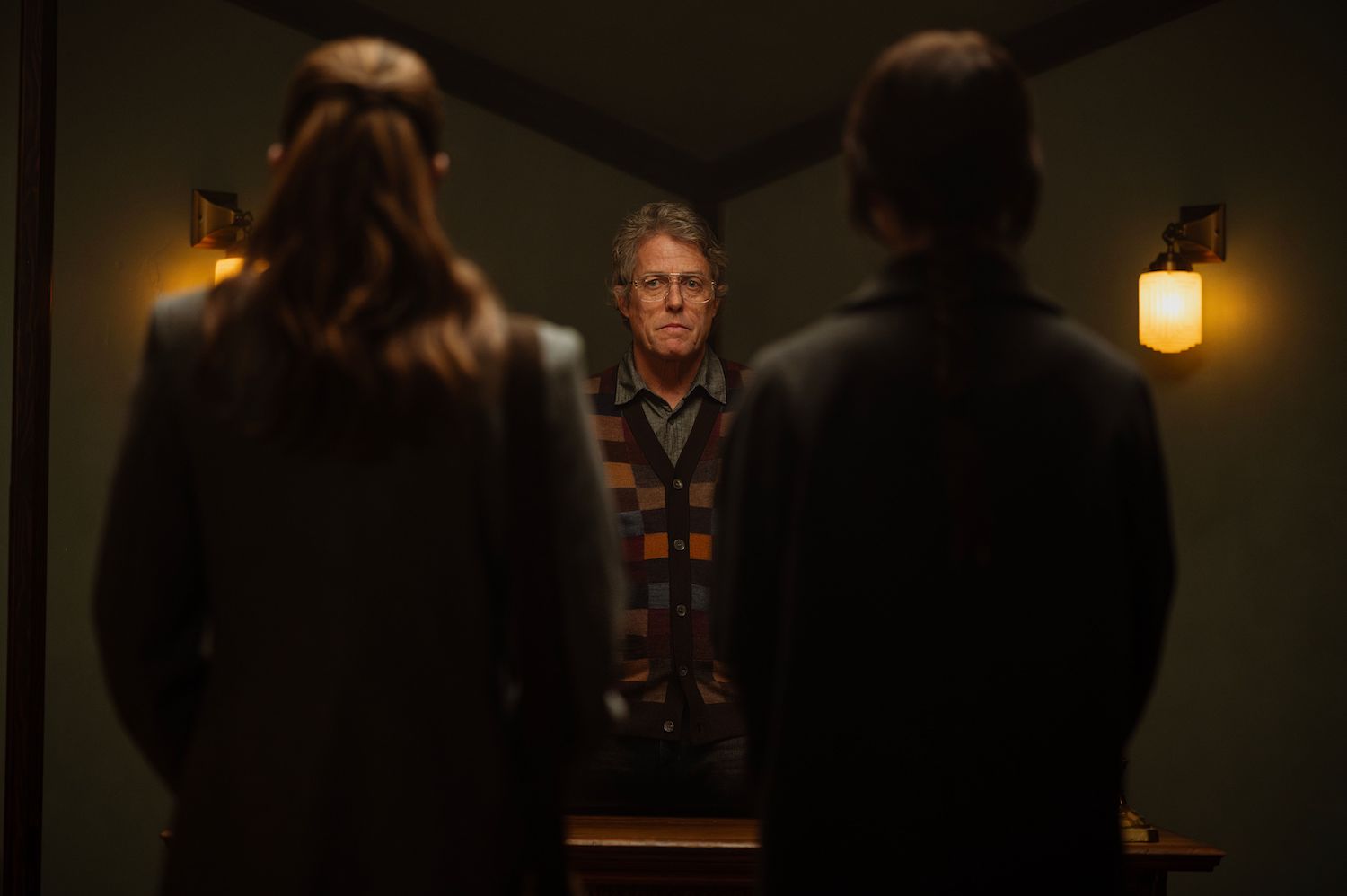
Hugh Grant in ‘Heretic’
A Reflection of Our Times
The arrival of these two particular films comes at a time when church attendance has been falling precipitously off a cliff for decades. A recent study revealed that only 20% of Americans now attend church weekly, a notable decline from 32% in 2000. For decades now, religion shaped American life: grace before dinner, Sunday church, and even Presidents frequently invoking God in their speeches. But those days feel long gone and Hollywood has largely steered clear of exploring religion as a serious source of escapist entertainment.
Yet, here we are, discussing two mainstream movies that tackle religion head-on, not with nostalgia, but with a critcal eye. This suggests that religion might be evolving rather than declining, with artists feeling it’s time to think critically about faith, explore different viewpoints, and reexamine our relationship with it.
The Patriarchy and the Female Lens
The filmmakers also seemed to have something to say about patriarchy. Both films examine how men treat women and what this reveals about gender roles. In Conclave, Isabella Rossellini’s character, a nun relegated to “second fiddle,” asserts herself in a defiant scene, demonstrating that even in the background, women wield their own influence and power. In Heretic, religion is weaponized as a tool to trap and manipulate women, as evidenced by the imagery of caged nuns, a clear metaphor for how men view women in society. These themes tie directly into a broader conversation about gender and power, particularly in a political climate where these issues are front and center.
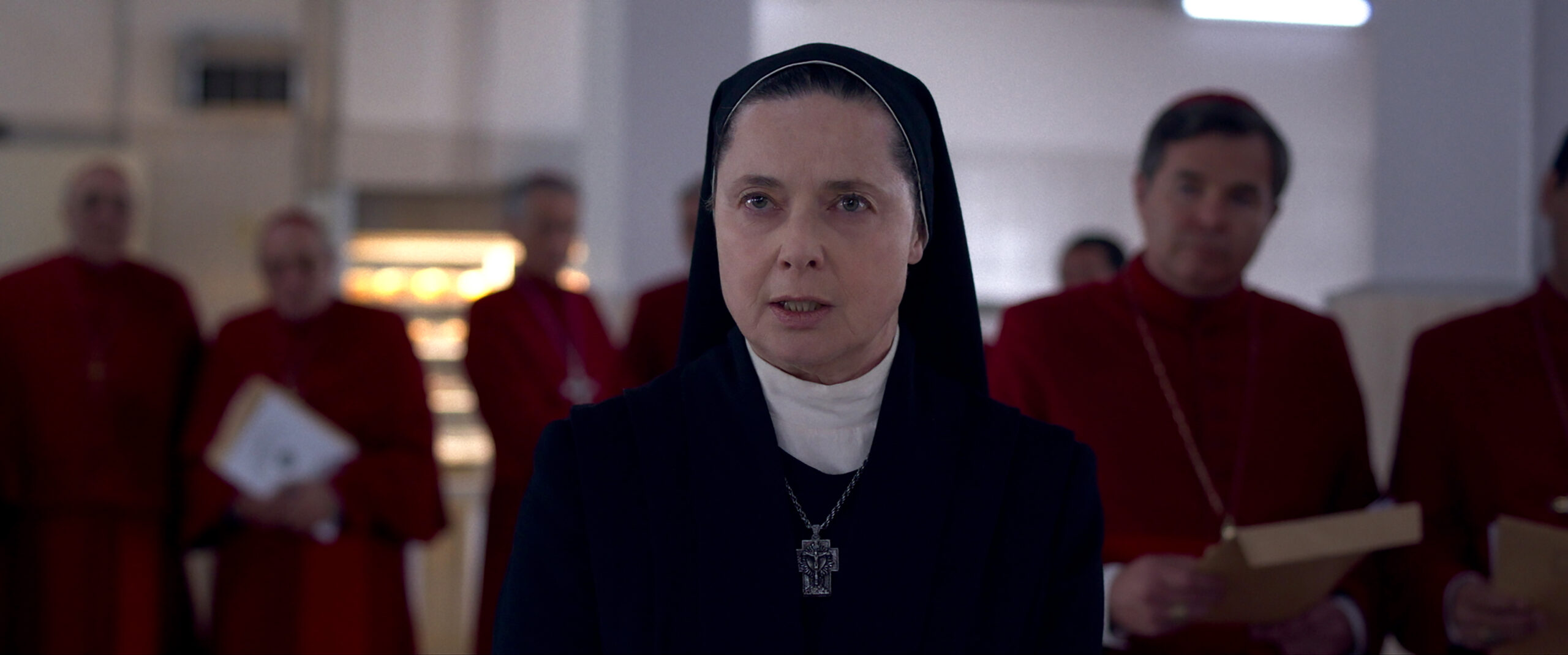
Isabella Rossellini in ‘Conclave’
A Step Forward for Latino Representation
Cardinal Benítez, played by Mexican actor Carlos Diehz (in his breakout role), is Conclave‘s boldest statement on religion and power. His character, a Latino figure in a sea of white clergymen, embodying both tradition and disruption. Without giving away spoilers, Benítez’s unexpected actions place him squarely at the center of the story. This scene interests me personally because it joins a small but growing number of mainstream films that are casting Latino actors in pivotal, power roles, much like Ana de Armas’ character Marta Cabrera inheriting the mansion and fortune in Knives Out, or America Ferrera’s character Gloria delivering an impassioned monologue about womanhood in Barbie.There seems to be a growing acceptance within Hollywood and mainstream audiences toward seeing Latino actors not just in supporting roles but potentially in lead roles.
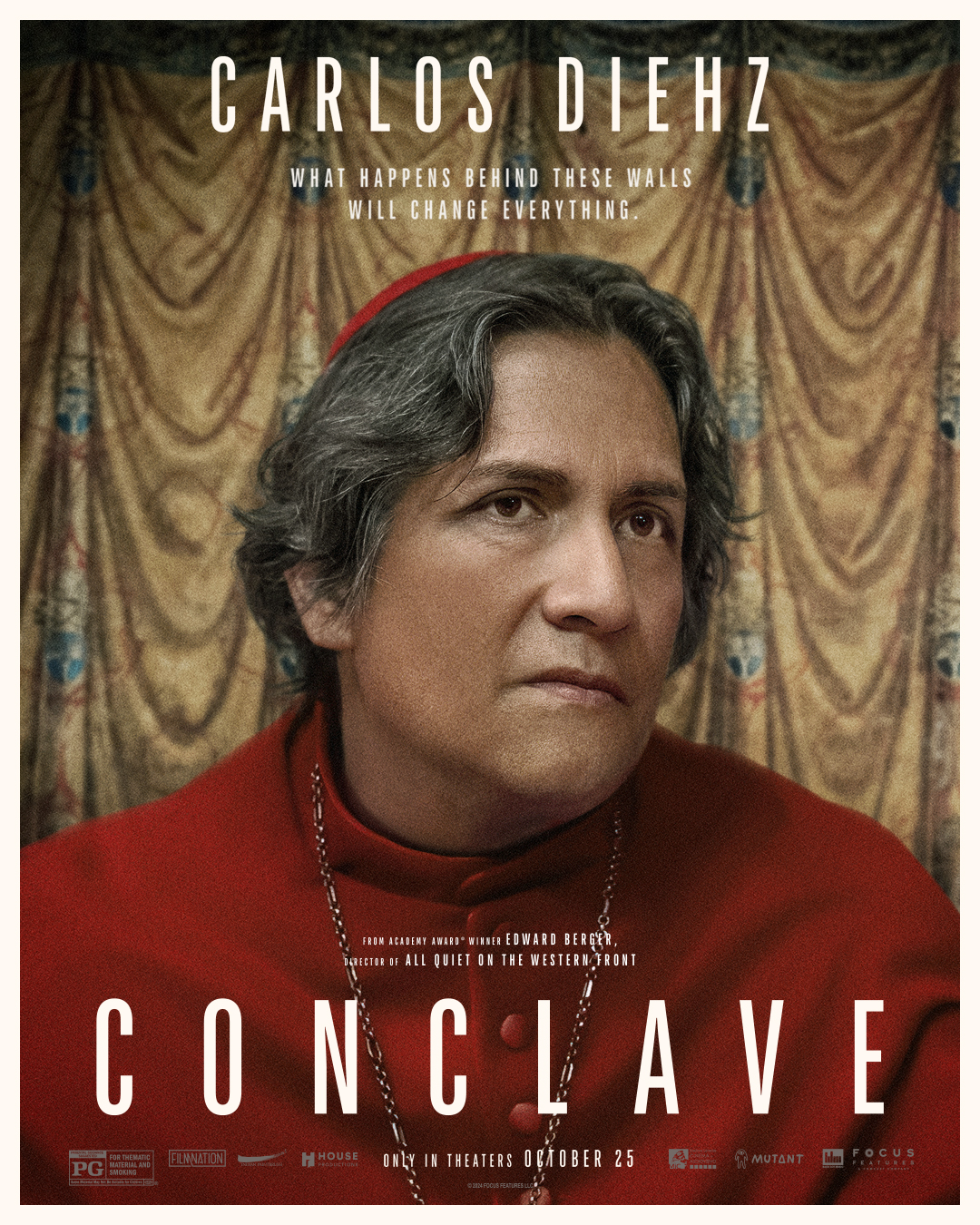
Reclaiming the Narrative
So, is religion making a comeback? Not in the nostalgic sense. Instead, it’s returning as a subject ripe for critique, reflection, and reinvention. What my wife and I realized is that Conclave and Heretic are not offering easy answers; they are posing questions, uncomfortable questions about us. The real question isn’t whether religion is returning, but whether we’re ready to confront it on our own terms.

